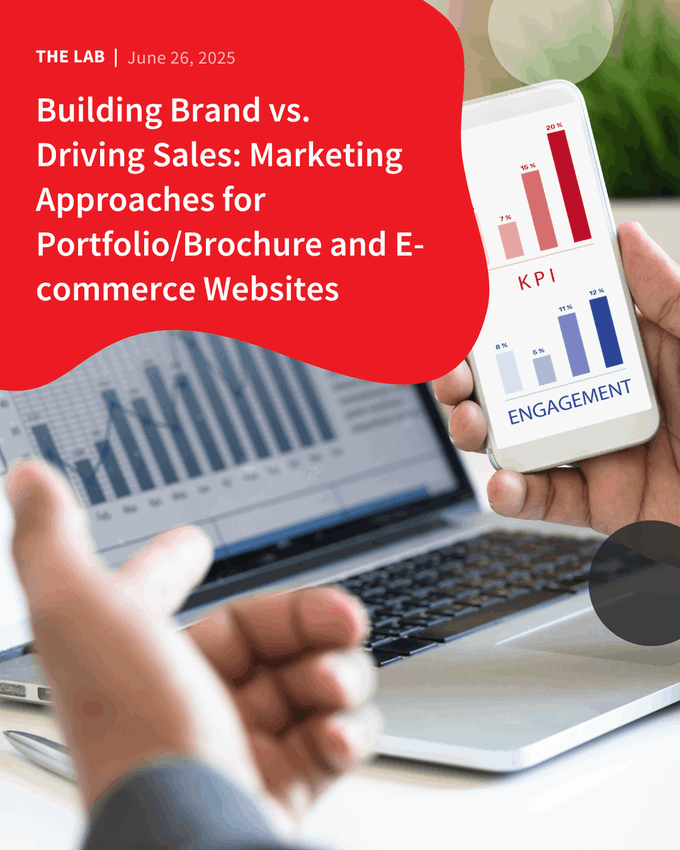A planned sales strategy creates the foundation of a successful and cohesive sales within an organisation. Sales initiatives and strategies also help your sales people attain shared goals and empower each member to do their best work. This also gives them a strong sense of accomplishment and success.
 At its core, the true definition of sales is the process of meeting a customer’s needs and providing a solution to their problems in a way that differentiates your solution from your competitors.
At its core, the true definition of sales is the process of meeting a customer’s needs and providing a solution to their problems in a way that differentiates your solution from your competitors.
The concept of sales analyses the buying and selling effects, and places you and your teams’ focus primarily on generating sales transactions by placing emphasis on goods or products customers may not ordinarily buy but need. It’s primarily all about persuading a prospect to buy a product or service.
However, it’s not just about pushing products and/or services onto prospects or potential customers, it’s about creating a plan that resonates with an audience, addresses their pain points, while guiding them seamlessly through the buyer’s journey.
It’s therefore imperative to create a comprehensive sales strategy with coherent and attainable goals. It would require a strategic approach to lead generation and relationship building.
For any strategic business, driving leads should be the ultimate goal of any sales and marketing efforts. The higher quality of leads you get, the higher your chances of goal conversions you will ultimately achieve.
There’s a good reason why businesses consider their sales teams as the lifeblood of the business, employing a range of carefully thought-out tactics and approaches designed to maximise conversions, build brand loyalty, and drive revenue growth.
There’s a variety of ways that today’s sales leaders can reach customers. The internet and digital platforms are, without a doubt, keys for attracting new leads and prospects. But without a sales plan and clear sales strategy, it would be a challenge to reap the benefits of any sales activity, that is, if you can even have any.
Sales Strategy Creates Focus.
Sales strategies are meant to create clear guidance and objectives to your sales organisation. These guidelines create focus and are beneficial for communicating your goals and keeping everyone on your sales team on the same page. As a sales leader, you have to ensure that your team understands the organisation’s sales strategy.
It takes teamwork to create a strategy and understanding which tactics can be useful in obtaining new customers. But to be truly effective, your strategy needs to focus on keeping conversations going with your prospects. Skilfully delivered conversations creates a distinctive consumer experience, adds value for your buyers, and separates your business from that of your competition.
A focused sales strategy involves targeting offerings toward customers who need and want those products or services, while setting aside prospects that do not fit your target customer profile.
In today’s modern business environment, the consumers are more informed and discerning, so a one-size-fits approach simply won’t cut it. Keeping your focus on understanding the nuances of your target demographic, their buying behaviours, preferences, aspirations and pain points will help you in crafting an effective sales strategy, tailor-made to connect with them on a personal level.
Seasoned Experts in Sales and Lead Generation.
Sales and lead generation can be considered an art form that requires years of experience to master. Though it would be uncharacteristic to call ourselves masters in sales and lead generation, Accentuate Web Design and Marketing’s team stand out as seasoned experts that are capable of implementing new tactics that emerge in the digital landscape.
Through our meticulously crafted approach, our proven methods ensure we can help you achieve online success for your business. Your journey begins with a personalised touch by engaging you in a one-on one digital marketing session.
The time spent is dedicated to understanding anything and everything about your business, and zeroing in on your business vision, goals, and objectives. This personalised session sets the foundation for the creation of a tailored plan that aligns with your business goals. At this juncture, our remarkable Marketing Manager offers valuable insights on how to attain results.
Our team will then craft an actionable customised strategy overview brief that’s delivered within 7-10 working days after the digital marketing session. This comprehensive document outlines our recommended steps to achieving your goals.
Accentuate and our seasoned team of experts extends to refining your brand’s identity. We ensure that it radiates with professionalism that captivates your audience.
Before crafting strategies and to enhance our results-driven approach, we gain a holistic understanding of your industry’s landscape through competitor analysis. We use this insight and meticulous process to ensure that every step is purposeful, and every action drives your business to tangible results.
What is an Online Sales Strategy?
If you find it difficult and/or struggling to acquire customers or promote your business, there is a need for you to upskill in areas of digital marketing and social media. Most successful businesses today rely on doing their sales and marketing related activity online, mainly due to the reach, cost-effectiveness, and influence of the internet.
Going online allows you to reach and interact with your target audience much more effectively than traditional sales methods. However, going online won’t automatically guarantee that customers will come and ring the sales tills. For that, you’d need an online sales strategy.
An online sales strategy is your map to guide your business toward success in the virtual marketplace. This crafted plan is the blueprint that outlines how your sales team will be able to promote and sell your products or services online.
Sales strategies typically include growth goals, KPIs, buyer personas, sales processes, team structure, competitive analysis, product positioning, and specific selling methodologies.
Components of an Online Sales Strategy.
- Identify Your Target Audience. Every effective online sales strategy must begin with a deep understanding of your intended target audience. By identifying your target demographic, you will then be able to gauge their behaviours and needs for you to be able to tailor your approach to resonate with them.
- Unique Selling Proposition (USP). This sets what you’re offering apart from your competition. You should outline, define and accentuate this unique quality in your sales strategy. Your USP is the foundation from which you will base your messaging and differentiation. Whether it’s product or service quality or innovative features.
- Platform Selection. There are a number of platforms available in the digital landscape at your disposal. There are e-commerce websites, social media platforms, and third-party marketplaces. A sales strategy should outline which platforms will be most advantageous for you to be able to reach your target audience and relevant to your brand identity.
- Content Creation. The main currency used in the digital world is content. Your strategy should then outline the type of content you must create that will engage your target audience. It is not limited to written content. It can be in conjunction with captivating videos, images, graphics, product descriptions, or even interactive social media posts. The purpose of which is not only to educate your audience, but it can also be used to guide potential customers through the buying journey.
- Online Promotional Tactics. Your strategy should detail a mix of promotional tactics that will generate traffic and generate leads. From search engine optimisation (SEO), pay-per-click (PPC) ads, collaborations with influencers, and email marketing. The aim of each promotional tactic is to lead potential customers to convert.
- Pricing and Incentives. Pricing strategy plays a significant role in a buyer’s decision-making process. In this area, you have to consider competitive pricing, as well as offering discounts, special bundles or offers, that can encourage customers to take action.
- Customer Journey Mapping. Understanding the path potential customers take from awareness to purchase is crucial. A well-designed online sales strategy maps out the steps by identifying each touchpoint and creating strategies for each stage to mitigate possible friction and maximise conversion.
- Measurement and Analytics. Refining your strategy requires analysing data. Your sales team needs to determine your KPIs and establish a system for tracking and analysing data. This is important since from there, you will be able to assess the effectiveness of your strategy and make data-driven adjustments as and when needed.
- Align Marketing and Sales. We see it too often that sales and marketing work separately, even when their goals are compatible. Marketing creates the messaging to generate leads for the sales team.
In turn, the sales team uses messaging and tools to transform the leads into revenue. A lack of alignment creates gaps in your process that may hamper your efforts. Consider Sales as the storyteller of your business, then Marketing is your story builder. These two teams must align to achieve one purpose, and that is to persuade customers to choose you.
The Importance of an Online Sales Strategy.
To put it plainly, an effective sales strategy is an important aspect of a business’ growth. A clearly defined sales strategy enables you to plan for the future, helps in assessing problems, and provides different approaches to solving problems across your organisation. The best sales strategy must have a clear objective with a plan that can be revisited, reviewed, and amended over time.
Having an online sales strategy forces you to analyse existing tactics and address customer needs at every stage of your sales funnel. From there, you’d be able to gauge which tactics are currently working and what’s not. In addition, you would be able to set your sights on new strategies that you could implement to ensure success and increase your return on investments (ROI).
Furthermore, sales strategies instil accountability as well as drawing a path towards achieving results. We certainly hope that what you have read so far is compelling enough to encourage you to incorporate online sales strategy into your digital marketing plan to simplify your focus on the priorities that matter.
Where and how do I start? Great question! Accentuate Web Design and Marketing, created our Digital Marketing Strategy Session to help and guide you on the intricacies of digital marketing. Book your slot here, today.
What is Lead Conversion?
Every sales strategy aims to convert leads. Leads are potential customers who are interested in your product or service. The process of converting leads involves nurturing these potential customers, guiding them towards becoming actual customers, and ultimately making a sale.
The process requires building trust, providing value, and addressing their pain points or concerns. The right sales strategy can turn leads into customers, which then drives sustained business growth.
Lead conversion is akin to a delicate dance when addressing the unique needs of each lead. Effective lead conversion strategies involve engagement using tailored communications that resonate with the lead’s preferences, aspirations, and pain points.
Your goal is not just to complete the sale, but also to establish a lasting customer relationship that can lead to repeat business, referrals, and an overall positive impact on your business’ bottom line.
Why Knowing Your Conversion Rate Important?
In a nutshell, conversion rates can tell you how successful your campaigns are. A higher conversion rate means how effective your strategies are.
With knowledge of your conversion rate, you can tailor your marketing campaigns for social media or other digital channels to your specific target audience based on your sales/marketing strategy categories/criteria.
The most important aspect to remember when it comes to conversion rates is that you can always do better. Understanding what percentage of your prospects are completing the goals you set to drive your business forward allows you to gauge your success rate as well as identify areas for improvement.
An improvement in your conversion rate will also accord you more sales with the same amount of traffic. For example, let’s say you’re spending $1000 a month on ads to drive 500 visitors to your site, if you can manage to double your conversion rate, you essentially just doubled the value of your ad spend.
You are then provided with either to cut back on your ad spend without a loss on benefit, or you can invest the additional revenue into new ad programs.
However, do note that while higher conversion rates look great with the traffic you manage to generate, not all sources of traffic are created equal. Some can still contribute to gaining new customers, even though their conversion rates may not be that high.
For instance, organic traffic has higher conversion rates than ads. This is mainly due to the fact that people searching for something directly normally show more intent to buy than people clicking on an ad.
Summary and Conclusion.
The crafting of online sales strategies is the cornerstone of any successful and profitable online business. By partnering with Accentuate web Design and Marketing, you’ll not only grasp the intricacies of crafting these strategies but help you implement them effectively.
Understanding the essence of what online sales strategy is, and recognising the significance of lead generation and conversion rates, will help you with valuable insights that you’ll need.
Creating an online strategy is not just about boosting your sales. It is also about cultivating and nurturing customer relationships, building brand loyalty, and positioning your business for sustained growth and success.
If you’re ready to transform your online business, take the leap by booking an online Digital Marketing Strategy Session with Accentuate Web Design and Marketing today!








